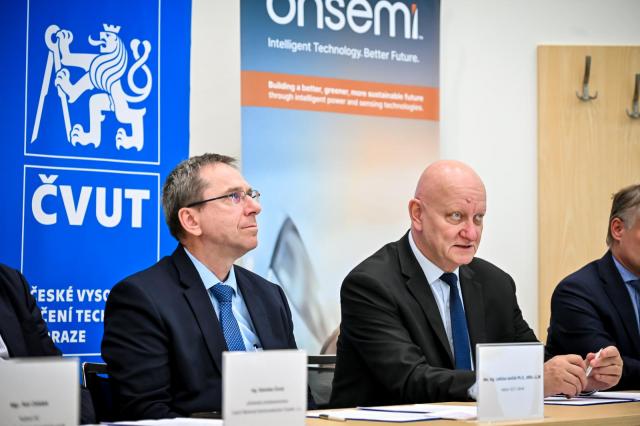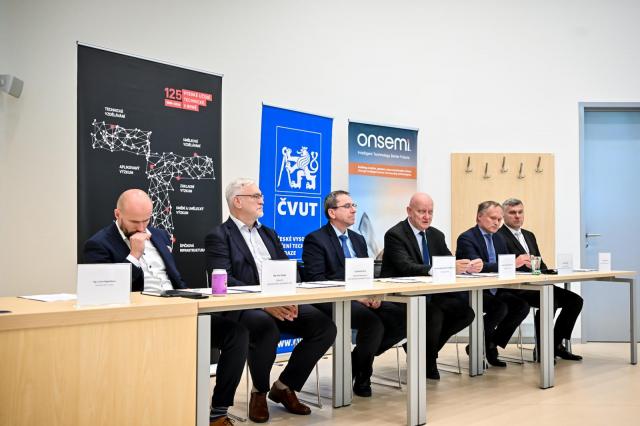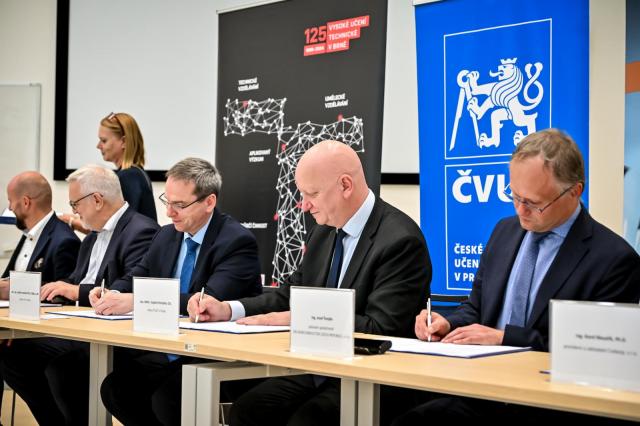A national center for semiconductors and chips will be established in the Czech Republic
Prague, June 19, 2024 – Next year, a national competence center for semiconductors is expected to be established in the Czech Republic, supporting the goals of "Chips for Europe," the first pillar of the European Chips Act. The center will integrate the Czech Republic into the emerging European network of competence centers. In line with the proposal of the National Semiconductor Strategy, a consortium of universities, businesses, the semiconductor cluster, and an innovation agency is preparing the Czech National Competence Center for Semiconductors.

Under the European Chips Act (EU Chips Act), a network of national semiconductor centers is being established in Europe. The Czech Semiconductor Competence Center will be part of this network. The center is being developed in accordance with the National Semiconductor Strategy, which is being prepared under the Ministry of Industry and Trade in cooperation with the Government Office and the Ministry of Education, Youth, and Sports. On Wednesday, June 19, six entities signed an agreement on the joint preparation of the national semiconductor center: the two largest Czech technical universities – Brno University of Technology and Czech Technical University in Prague, whose role will mainly be to provide education in semiconductors and chip design to significantly strengthen human resource capacities for the semiconductor industry in the Czech Republic, the largest Czech semiconductor manufacturer – onsemi, the company Codasip, a leading global creator of semiconductor design applications, the National Semiconductor Cluster (Czech National Semiconductor Cluster), an association of high-tech companies, universities, research centers, and other entities forming part of the Czech semiconductor value chain, and the innovation agency JIC, which supports the development of startups and innovative companies, including those in the semiconductor sector.
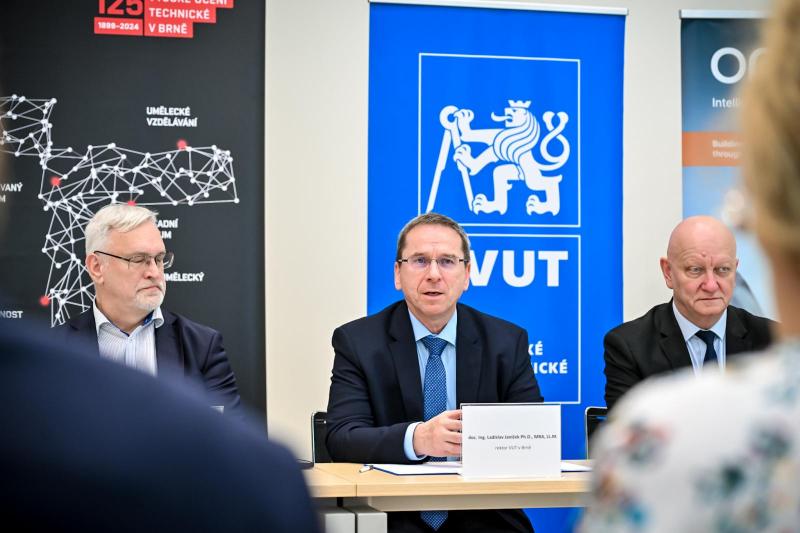
The Czech Republic has made a significant contribution to the European Chips Act (EU Chips Act), which aims to double the EU's share of the global semiconductor market to 20% by 2030. The agreement consists of three pillars, the first of which, "Chips for Europe," seeks to strengthen the EU's position in chip design and intellectual property (so-called "fabless"), which represents one-third of the total semiconductor value chain and has an annual growth rate of 35%.
The operational objectives of the first pillar include the creation of a shared design platform, advanced pilot lines, a network of competence centers across the EU, and the establishment of a chip fund to facilitate access to financing for startups, particularly small and medium-sized businesses. These operational goals aim to eliminate current barriers preventing greater involvement of European entities in chip design and IP, including licensing costs for development tools, access to financing, prototype realization, and mass chip production.
The consortium's competence in chip design, with available comprehensive tools for using computer programs and specialized computer hardware for designing, simulating, verifying, manufacturing, and testing electronic systems – EDA (Electronic Design Automation) – as a key component of the center's function, will provide a functional interface for users of the design platform and pilot lines and serve as a consulting and educational center for "Chips for Europe" and the chip fund.
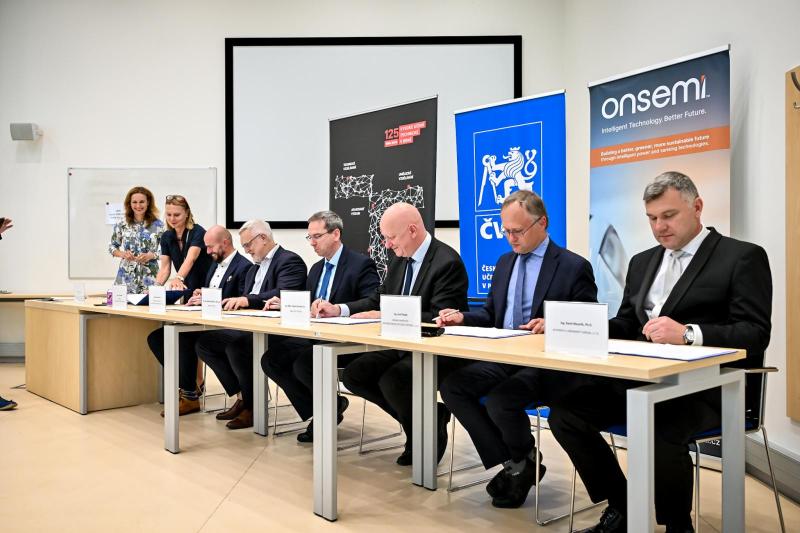
“The recent global crisis has brought Europe to a crossroads. Europe has realized that we need to strengthen our technological self-sufficiency and independence in critical resources and technologies. Semiconductors and chips are a strategic and absolutely indispensable commodity in today’s world,” said Brno University of Technology Rector Ladislav Janíček. That is why the European Union passed the Chips Act (EU Chips Act) in 2022 to position itself as a key global player in this industry, allocating more than 43 billion euros for this effort. “The Czech Republic has great potential to become a significant European partner in this field. High-quality research and the presence of global leaders in semiconductors, such as onsemi and Codasip, provide the best prerequisites for this,” added Czech Technical University Vice-Rector Radek Holý. “Moreover, the Czech Republic is a global hub in electron microscopy and plays a significant role in the automotive industry, both of which are crucial in the development and production of chips and their applications,” added Brno University of Technology Rector Ladislav Janíček.
“The center is another step in strengthening the Czech Republic’s position in semiconductors, a goal the cluster has been pursuing for a long time as a co-initiator of the Czech National Semiconductor Strategy. As a member of the Silicon Europe Alliance, the cluster integrates the Czech Republic into the EU’s network of competence centers and clusters and other components of Chips for Europe through the expertise of all its current and future members, who form the Czech semiconductor value chain,” said Stanislav Černý, President of the National Semiconductor Cluster.
The competence center will provide qualified services in chip design as required by Chips for Europe, particularly for startups and small companies. “It is absolutely essential that we strengthen Europe’s technological sovereignty, reduce dependency on imports, and create a strong ecosystem—one in which globally successful innovative companies can thrive. At JIC, such companies will find expert support to help them enter the global market,” clarified Petr Chládek, Director of the JIC Innovation Agency. “Sharing European IP and chip design tools is a revolutionary step in which the Czech Republic has a crucial opportunity to strengthen its position not only within the EU but also by capitalizing on its intellectual potential. However, it is necessary to establish conditions within the National Semiconductor Strategy for a fundamental boost in semiconductor education and support for the innovative fabless segment,” added National Semiconductor Cluster President Stanislav Černý.
The six partners launched the preparation of the national semiconductor competence center project last year with the support of the South Moravian Region. Industrial partners of the project, onsemi and Codasip, help define the needs of the semiconductor industry and the role of the center. “It is essential that the center truly benefits the Czech semiconductor ecosystem, so we are taking on the role of a key industrial partner, ready to support research, development, and education, including opportunities for small and medium-sized enterprises,” said Michal Lorenc, Head of Research and Development Projects at onsemi. “We are also working to bring in our experience from international semiconductor supply chains, as existing industrial links will significantly contribute to accelerating the center’s integration into the European semiconductor ecosystem,” added Karel Masařík, President of Codasip.
The joint agreement, which defines the roles, relationships, and responsibilities of the individual partners, commits them to formally submitting this project in the national call. If the consortium is successful, it will seek additional funding from the European call. The final project proposal is expected to be submitted in September 2024. The preparation of the National Competence Center is coordinated by Brno University of Technology.
Contact: Jana Drbohlavová – Project Coordinator, jana.drbohlavova@vut.cz, 737 536 202
| Published | |
|---|---|
| Link | https://www.vut.cz/en/but/media/f19527/d260959 |
Responsibility: Mgr. Kamila Šmídková
